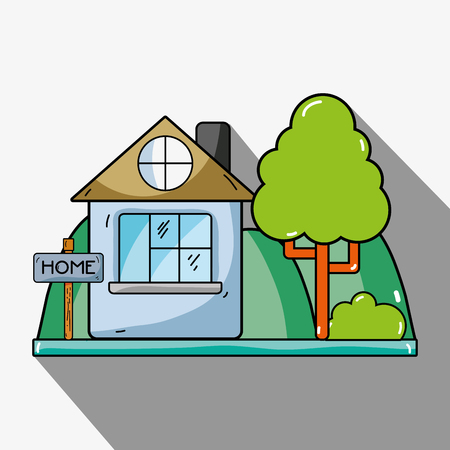1. Understanding the Basics of HOAs
If you’re a first-time homebuyer in the US, chances are you’ve come across properties that are part of a Homeowners Association, or HOA. But what exactly is an HOA, and why does it matter to you? At its core, a Homeowners Association is an organization within a residential community—such as a subdivision, condo complex, or planned neighborhood—that manages common areas, enforces community rules, and collects fees from homeowners. HOAs exist to help maintain property values and create a pleasant living environment by making sure everyone follows certain standards for things like landscaping, exterior paint colors, noise levels, and even holiday decorations. In many parts of the US, especially in newer developments or condos, being part of an HOA is not optional—it comes with the territory when you purchase your home. While HOAs can streamline upkeep and boost curb appeal, they also mean you’ll have to follow rules set by the association and budget for monthly or annual dues. Understanding how HOAs operate and what they expect from homeowners is crucial before making one of the biggest investments of your life.
2. What Fees You Can Expect
When buying your first home in a community with a Homeowners Association (HOA), understanding the range and structure of HOA fees is essential for making a smart investment. These fees aren’t just random charges—they’re an ongoing cost that can affect both your monthly cash flow and your property’s resale value. Here’s what you need to know:
Breaking Down Common HOA Fees
| Fee Type | What It Covers | Typical Range (per month) |
|---|---|---|
| Regular Assessments | General maintenance, landscaping, amenities, security, and insurance for common areas | $100 – $700+ |
| Special Assessments | Major repairs or unexpected expenses not covered by reserve funds (e.g., roof replacement, pool repair) | Varies; can be one-time or periodic |
| Transfer Fees | Administrative costs when you buy/sell within the HOA community | $200 – $500 (one-time) |
| Reserve Fund Contributions | Savings for future big-ticket repairs or upgrades to shared facilities | Often included in regular assessments |
| Fines & Penalties | Charges for rule violations (e.g., parking issues, exterior changes without approval) | $25 – $100+ per infraction |
Why Do HOA Fees Vary?
The amount you’ll pay can differ widely depending on several factors:
- Amenities: Communities with pools, gyms, or gated security have higher fees.
- Location: Urban HOAs or those in high-demand suburbs tend to charge more.
- Property Type: Condos often have higher fees than single-family homes due to shared building maintenance.
- Reserve Practices: Well-managed HOAs maintain robust reserves, possibly resulting in fewer surprise assessments.
How to Factor HOA Fees Into Your Home-Buying Budget
- Add Monthly Fees to Your Mortgage Calculation: Lenders may include HOA dues when determining how much house you can afford. Don’t overlook this—it impacts your debt-to-income ratio.
- Review the HOA’s Financials: Ask for the latest budget and reserve study. If reserves are low, be prepared for potential special assessments.
- Evaluate Fee Increases: Check the history of fee hikes in the past five years. Frequent increases might signal poor management or rising costs you’ll need to shoulder.
- Compare With Similar Properties: Use local comps to see if the fees are in line with similar communities—outliers could affect resale value down the road.
The Bottom Line for First-Time Buyers
Treat HOA fees as a non-negotiable part of your investment equation. Smart buyers dig into not only the current costs but also any red flags around future increases or surprise assessments. Include these numbers in your offer calculations and long-term financial planning so there are no nasty surprises after closing.

3. Rules, Regulations, and Restrictions
If you’re a first-time homebuyer considering a property in a homeowners association (HOA), understanding the rules and regulations—often called Covenants, Conditions, & Restrictions (CC&Rs)—is crucial. HOAs are notorious for having strict guidelines that dictate not just the look but also the use of your property. For example, you might be surprised to learn that changing your front door color, installing a satellite dish, or even planting certain types of shrubs could require prior approval from the HOA board.
Most HOAs will have clear-cut rules about what’s allowed when it comes to exterior modifications. Want to repaint your house? There’s probably an approved palette. Thinking about putting up holiday decorations? You’ll need to check if there are date restrictions. These standards help maintain neighborhood aesthetics—and theoretically protect property values—but they can feel restrictive if you like to make personal touches to your home.
It doesn’t stop at appearances. Many associations set policies on parking (no RVs or boats in driveways), noise levels, pet ownership, and even rental activity. If you’re planning to rent out your place short-term via Airbnb or VRBO, know that some HOAs ban rentals outright or impose minimum lease lengths. Violating these rules can result in fines or legal action, so it pays to review the CC&Rs line by line before making an offer.
Bottom line: Before you sign on the dotted line, ask for a copy of the HOA’s governing documents and read them thoroughly. Knowing these rules ahead of time will help you avoid unwelcome surprises and ensure your investment fits with your lifestyle goals.
4. Pros and Cons for First-Time Buyers
If you’re stepping into the real estate market as a first-time buyer, understanding the realities of living in an HOA-managed community is crucial for both your lifestyle and investment goals. Let’s break down the practical advantages and disadvantages to help you make an informed decision.
Advantages of Buying in an HOA Community
| Amenity | Benefit |
|---|---|
| Community Amenities | Access to pools, gyms, parks, and clubhouses without personal maintenance costs. |
| Maintenance & Upkeep | HOA often handles landscaping, snow removal, and exterior repairs, saving you time and hassle. |
| Neighborhood Standards | Enforced rules keep the area attractive, which can help maintain or increase property values. |
| Security Features | Many HOAs invest in gated access or neighborhood patrols, providing peace of mind. |
| Community Engagement | Organized events foster a sense of belonging and connection with neighbors. |
Potential Drawbacks to Consider
| Challenge | Description |
|---|---|
| Monthly Fees | HOA dues can add significantly to your monthly costs. Assess if amenities justify the price. |
| Restrictions & Rules | HOAs enforce strict guidelines on home appearance, renovations, rentals, pets, and parking—which may limit your freedom as a homeowner. |
| Poor Management Risks | Ineffective boards or lack of transparency can lead to mismanaged funds or deferred maintenance that impact your investment. |
| Special Assessments | If unexpected repairs arise (like roof replacements), you could be hit with extra fees beyond regular dues. |
| Poor Neighbor Relations or Conflicts | Disagreements over rule enforcement or neighbor behavior can escalate; mediation processes vary by association. |
The Bottom Line for First-Time Buyers
If you value convenience, amenities, and neighborhood consistency, an HOA community may suit your needs—just be sure to review the rules and financial health of the association before committing. For buyers prioritizing autonomy or who want maximum control over their property, an HOA’s restrictions might feel too limiting. Carefully weigh these pros and cons against your long-term goals to ensure the best fit for your American dream home.
5. HOA Management and Your Rights
Understanding how HOAs are managed is crucial for first-time homebuyers. Homeowners associations typically operate under a board of directors elected by residents, and these boards make key decisions about budgets, rule enforcement, and community maintenance. As a homeowner, you have the right to attend HOA meetings, vote in board elections, and review financial documents. If disputes arise—whether about fees, rule violations, or neighbor complaints—most HOAs have formal processes for handling them. This usually involves written notices, mediation, or hearings before the board. Importantly, U.S. laws like the Fair Housing Act and state-specific statutes protect your rights as a homeowner. You can challenge unfair practices or illegal actions through legal channels if necessary. Before buying into an HOA community, make sure you understand the association’s bylaws and dispute resolution procedures, so you can protect your investment and enjoy your new home with confidence.
6. Tips for Evaluating an HOA Before You Buy
Scrutinize the HOA Documents
Before you fall in love with a home, request and carefully review the HOA’s governing documents—these include the Covenants, Conditions & Restrictions (CC&Rs), bylaws, and rules and regulations. These docs lay out everything from pet policies to parking restrictions and architectural guidelines. Make sure you’re comfortable with their requirements and limitations so there are no unwelcome surprises after closing.
Review Financial Statements and Budgets
A healthy HOA is financially stable. Ask for recent budgets, financial statements, reserve studies, and records of special assessments. Look for red flags like low reserves or a history of frequent fee increases. Solid finances mean less risk of future “special assessments” that could hit your wallet hard down the road.
Understand Current Dues—and What They Cover
HOA fees aren’t just another monthly expense—they fund amenities, common area maintenance, insurance, and sometimes utilities. Make sure you know exactly what’s covered by the dues, and whether there are any pending increases or upcoming major projects that could affect your costs.
Talk to Current Residents
The best insights often come from people already living in the community. Knock on doors or join community Facebook groups to ask about their experiences with the HOA board, rule enforcement, communication style, and any issues they’ve encountered. Residents can give you the real scoop on what day-to-day life is like under this HOA’s management.
Check for Legal Issues or Ongoing Disputes
Ask if there are any ongoing lawsuits involving the HOA. Legal battles can drain resources and may signal deeper problems within the community. Your lender may also be wary of financing homes in HOAs with unresolved legal issues.
Don’t Skip Professional Help
If you’re feeling overwhelmed by all the paperwork and fine print, consider hiring a real estate attorney or agent experienced with HOAs. They can help identify potential pitfalls and ensure you’re making a smart investment decision—saving you both money and headaches as a first-time buyer.

